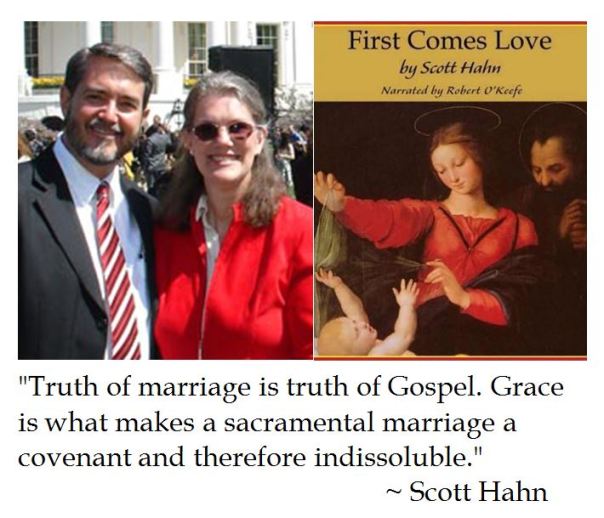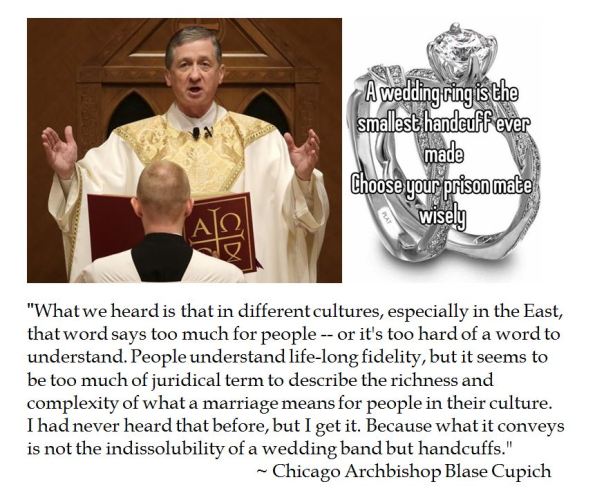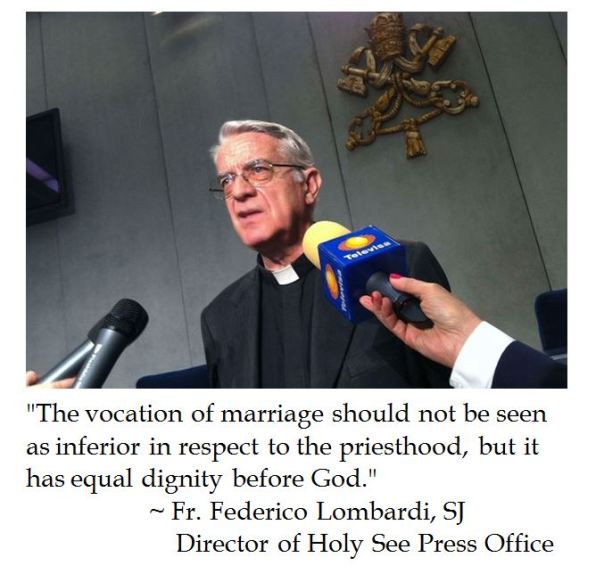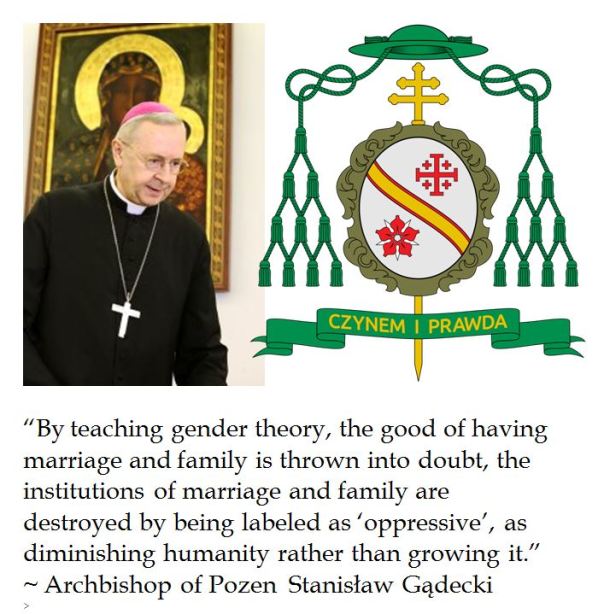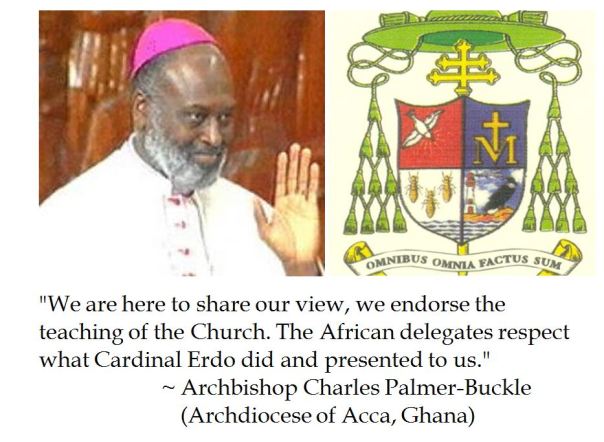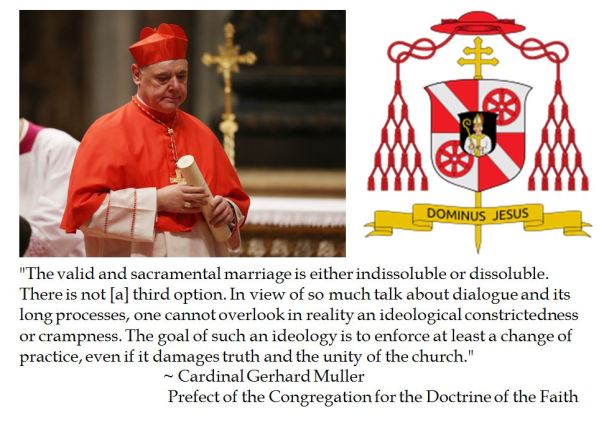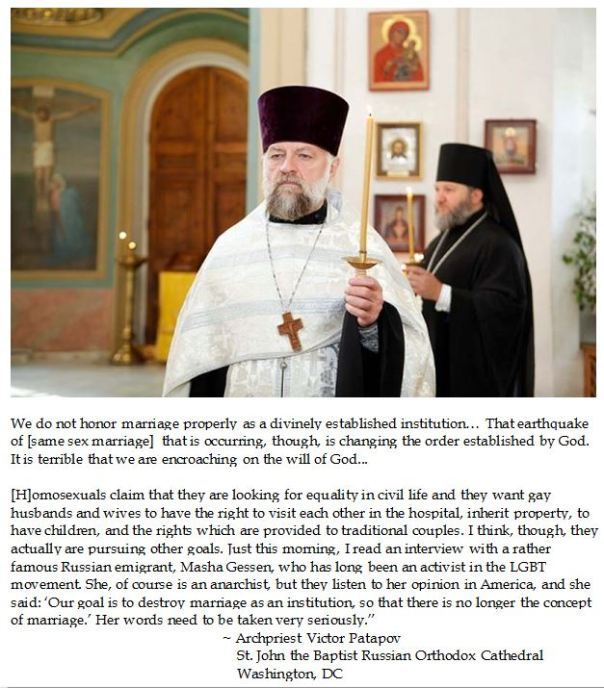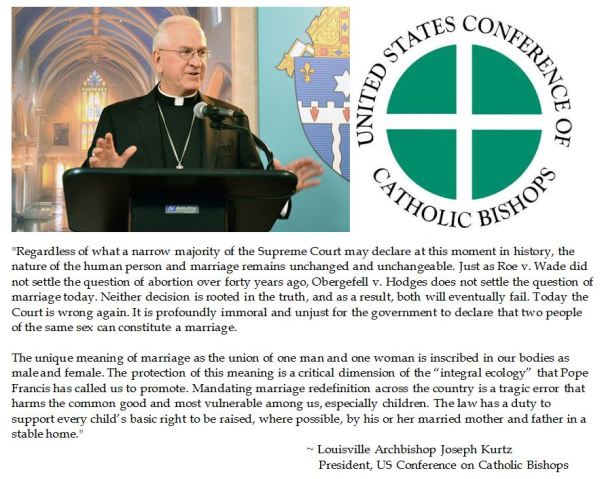Recently, I had some coffee talk with a more liberal Catholic friend who wondered why I am aghast at the sleight of hand in Pope Francis’ Apostolic Exhortation Amoris Laetitia (2016) concerning communion for Catholics in irregular marriages. My interlocutor argued that I should not care as this change neither effects me nor rocks my faith and it is meant to reach out to an increasingly secularized culture that needs healing.
The impetus of Amoris Laetitia's pastoral provision can be characterized as offering band aids to the wounded in the field hospital of faith. However, by circumventing the annulment process with a suggestion of pastoral counseling, it seems intended to attract more wayward Catholics who have “moved on” from a bad marriage back to the faith with the incentive of receiving the Eucharist. Such a procedure moots the Magisterium and risks cheapening the faith and endangers souls.
This theological conversation took place as I was reading Primal Loss: The Now-Adult Children of Divorce Speak (2017) edited by Leila Miller. The author graduated summa cum laude from Boston College, is a reverted Catholic mother of eight who became known for her blog “Little Catholic Bubble”. Leila Miller has now turned to writing apologetics on thorny moral issues. Primal Loss which aggregates the oral histories of 70 adult children of divorce in reaction to six simple but revealing questions:
1) What effect has your parents’ divorce had on you?
2) What is the difference between how you felt about the divorce as a child and how you feel as an adult?
3) Has your parents’ divorce affected your own marriage or view on marriage?
4) Asking for reactions to the bromides “Children are resilient”, “You’ll be just fine and live a successful life after your parents’ divorce.
5) Asking what would you say to your parents about their divorce and if their reactions are just unconscious revenge.
6) What should society know about how divorce affects children.
Sociologists might dismiss Primal Loss as anecdotal evidence from a self selected contributors which did not stem from a controlled study. The author’s objective was to given unvarnished opinions from those directly impacted by a divorce and to educate people on the ignored pitfalls of the Divorce Ideology which is championed in current culture and is one of the linchpins of the Sexual Revolution.
Indubitably, divorce is more prevalent today than it was a half century ago before the widespread. implementation of No-Fault Divorce. But those bent on accommodating the new reality of divorce culture cite the statistic that 50% of marriages in America end in divorce. But the index of Miller’s interviewees (whom she scrupulously protected their anonymities) belie that false fact. So many of the contributors to Primal Loss have parents who were married several times after their initial divorce. This certainly inflates the marriage rate. Michael Medved points to studies which show that two thirds of marriages last until one person dies. But the bogus 50% divorce rate statistic is part of the mythology that people in troubled marriages use to justify their self-centered action of divorce.
It was remarkable to read in Primal Loss the unvarnished opinions and reflective reactions that the now adult children of divorce had to their parents breaking up their family. Several of them chronicled abusive parents or adults mired in addiction (sometimes both parents), where it was understandable that separation was necessary for safety. Many times adultery (or the desire for a newer or more compatible mate) was the driving force for the divorce. But more often than not, these grown children of divorce recognized that parental selfishness was at play. Divorcing parents also broke up their families for seemingly trivial reasons under the generous guise of No Fault Divorce without weighing the devastating consequences on their children.
It was unsurprising that divorce pushes custodial parents into poverty and unsupervised parenting which makes kids prone to promiscuity, abortions and addiction to fill the void that they feel. These interviews also highlight how their parents example of divorce negatively impacts their faith. To justify their life style choices which are contrary to traditional church teaching, previously faithful parents pull back on their religiosity and children follow suit. The domestic church is decimated.
There is also the uncomfortable dynamic that with joint custody, kids of divorce have to adapt to two different households and parental styles. So during adolescence, when kids are struggling to discern their true identities, they must act to please the powers that be in their household du jour (which often may harbor bad feelings towards churchy purveyors of guilt). Add on the feeling of betrayal and abandonment for an institution which seems to be made of straw caused a fair number of interviewees to abandon their faith, seek more conducive pastures or seek self destructive secular solutions. As Primal Loss originated from Catholic social media connections, most of the contributors seemed to have reverted back to Catholicism.
 A set of lies which the Divorce Ideology trumpets is the knee jerk reaction “Oh, kids are resilient, they’ll get over it.” and the self serving “Kids will be happy if I am in a happier relationship.”. The tangled webs we weave when first we learn to deceive. Children crave acceptance so they will fake it until they make it and to great extends mask their woundedness from their family identity being torn away from their through divorce. Superficially, they’ll embrace the prospect of having two Christmases etc... But that comes at a cost of not having a stable place of their own. And the reality that they will have to grow up quickly, often becoming their custodian parent's sounding board about the failed marriage.
A set of lies which the Divorce Ideology trumpets is the knee jerk reaction “Oh, kids are resilient, they’ll get over it.” and the self serving “Kids will be happy if I am in a happier relationship.”. The tangled webs we weave when first we learn to deceive. Children crave acceptance so they will fake it until they make it and to great extends mask their woundedness from their family identity being torn away from their through divorce. Superficially, they’ll embrace the prospect of having two Christmases etc... But that comes at a cost of not having a stable place of their own. And the reality that they will have to grow up quickly, often becoming their custodian parent's sounding board about the failed marriage.  Combine an emotionally fragile adolescent who has been wounded by their parents’ divorce and parents preoccupied with their own love life along with authority issues with step parents, these children of divorce often are laxly parented lest they scion leave (and give their divorced spouse a “victory”). That interplay creates FINE kids, which one interviewee used as an acronym for “F-‘ed up Insecure Neurotic Emotional”.
Combine an emotionally fragile adolescent who has been wounded by their parents’ divorce and parents preoccupied with their own love life along with authority issues with step parents, these children of divorce often are laxly parented lest they scion leave (and give their divorced spouse a “victory”). That interplay creates FINE kids, which one interviewee used as an acronym for “F-‘ed up Insecure Neurotic Emotional”.Another reaction to their hemaneutic that divorce is OK because it allows the parent to seek a happy relationship was:
Before I say anything to them, can I slap them around a little first, and let them know that that makes me happy so they should be happy too? No. Okay...
 A reconstituted family rarely runs as smoothly as portrayed in the TV myths like “The Brady Bunch”. Most adult children revealed that they long yearned for the possibility that their parents may become reconciled. Adult children of divorce ruefully recall that their well being was perennially put in a lower position than their parents’ happiness. And it is usually made clear to divorced children what their place is in a blended family. No wonder the contributor harbored that slap happy reaction.
A reconstituted family rarely runs as smoothly as portrayed in the TV myths like “The Brady Bunch”. Most adult children revealed that they long yearned for the possibility that their parents may become reconciled. Adult children of divorce ruefully recall that their well being was perennially put in a lower position than their parents’ happiness. And it is usually made clear to divorced children what their place is in a blended family. No wonder the contributor harbored that slap happy reaction.What really seemed to be lacking in a Divorce Culture is the notion of sacramentality of marriage. If one views marriage as a contract, it is relatively easy to mentally justify walking away from it if you are not happy. Marriage ought to be properly understood as a covenant which is a sacrament modeled as the Lord wedded himself to a stiff necked people who He called his own despite their weaknesses and infidelity. Moreover, if we understand the Trinity as a divine relationship which results in the overflowing of love of the Holy Spirit, we should see the analogy in our own participation in creation through the sacrament of marriage and having children. Being wedded to someone is never easy and often requires sacrifice. And it is not just for us mere mortals. After all, the Lord endured having His only begotten Son sacrificed to reconcile with an estranged humanity.
The Church also needs to improve its catechesis about divorce. While dining with some on fire social justice warrior faithful, one person gave uninformed assent to provisions of Amoris Laetitia because divorced Catholics have already had it hard enough and ought to receive the Eucharist. He seemed stunned when I observed that those who remain celibate (honoring their covenental nuptuals) can. And those in irregular marriages (civilly divorced and remarried) can go through an annulment. The author tried to solve this by including Catholic teaching on marriage in her last chapter, but the message is better disseminated from the pulpit as well as Catholic media.
Some Catholics consider annulments to be a Catholic divorce, and contend that annulments are much easier to get today in America. But the process for a certificate of nullity asks incisive questions of petitioners and their witnesses which require deep introspection. I appreciated the suggestion by one Primal Loss contributor that couples should be allowed to go through the annulment process BEFORE having a civil divorce proceeding as it might encourage more couples to work through their problems and stay together.
Circumventing the annulment process to allow for pastoral counseling to educate couples in irregular marriages poses several problems. Priests already have severe time constraints and the necessity of educating thoroughly secularized consciences may make true faith formation challenging. The reliance on abiding by individual consciences without the surety of formal pronouncement of nullity from church authorities means that either souls are endangered or the process is a fiction. Furthermore, to continue to have an annulment process when this pastoral provision is foisted as being magisterial (which is mistaken as paragraph 3 of Amoris Laetitia indicates that it is a persuasive document intended pastorally) makes anyone seeking annulments as a pious patsy.
I appreciated the observation that when an annulment is granted, it may bring closure to the ex-spouses but it does not have the effect on the offspring as it does not change the dire circumstances of blowing up the family and snatching away their identities. An adult friend of mine declared that he was a bastard because his parents had their marriage annulled. I tried to tell him church teaching that while the sacramentality of the marriage was void, he was not born out of wedlock. That nugget of truth did not change his long held self perception.
One contributor to Primal Loss eloquently expressed the resulting marred self perception of being a child of divorce:
Divorce creates its own language for a child. Much of it is unspoken and the child is the only one who achieves fluency. It might be the voice of doubt in the back of one's mind one day, or the voice of indecision where I should be resolute another day. This perpetually dysfunctional language replaces the language of family love that otherwise forms a child's internal dialogue. So, in a way, divorce becomes the 'everlasting gift' to the child that a child can't overcome. The dysfunction replaces the permanence and security of an intact family.
Since most of Primal Loss were oral histories grouped together by topics, it was in many ways an easy read. Yet absorbing the tales of pain, reflections on the adverse impact of divorce on kids lives and the intractable issues associated with breaking up families also made it a painful read. A virtue of Leila Miller’s organization of the book is that aside from grouping narratives together which corresponded to her six questions, there was scant thematic argumentation, so a reader was not led to obvious take away conclusions, other than divorce is bad, it harms children in innumerable ways and ought to be avoided at almost all costs.
The penultimate chapter of Primal Loss contained Stories of Hope. Many of these accounts attest to the power of prayer. But they are not saccharine stories of sanctimoniousness. These adult children of divorce find themselves at the brink of a marital breakup. But the reoccurring theme is that they do not surrender to selfishness and look beyond themselves, turning to prayer along with considering their childrens’ plight.
Recently, Cardinal Robert Sarah, the Prefect of the Congregation for Divine Worship, offered high praise of Primal Loss for highlighting a world view which denies the value of self sacrificial love along with the damaging and long lasting consequences of divorce. This is a recommended read for anyone in a troubled marriage to contemplate before their break up their family. These testimonials may also give real life examples for adult catechesis. For myself, it illustrated the ill born consequences of the Church circumventing the Magisterium on marriage to be more appealing in a populist driven New Evangelization.













